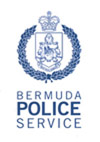Response to PJSC Report on Events of 2nd December 2016
Tue, 2019-07-09
 Commissioner of Police Stephen Corbishley – “I have had opportunity to read in detail the Parliamentary Joint Select Committee’s (PJSC) report into the events of 2nd December 2016.
Commissioner of Police Stephen Corbishley – “I have had opportunity to read in detail the Parliamentary Joint Select Committee’s (PJSC) report into the events of 2nd December 2016.
Whilst I was not the Police Commissioner at the time, I have responsibility to ensure the Bermuda Police Service (BPS) takes lessons from this day to ensure the way in which we manage such incidents in future, not least to secure the confidence of local communities in Bermuda that the BPS continues to be professional and operationally independent.
The PJSC received extensive written submissions from the former Police Commissioner, Michael DeSilva, and heard evidence from the former Deputy Commissioner Paul Wright.
Material in regards to the command of the operation was additionally provided.
Importantly, a report undertaken by Assistant Chief Constable Chris Shead, on behalf of the UK’s National Police Coordination Centre (NPoCC), an internationally recognised body of expertise in this area, was provided to the PJSC. This report highlighted 10 recommendations for the BPS to take forward in its future management of public protests and disorder. These recommendations have been addressed and I offered to the PJSC to attend and describe in detail the BPS’ response to these findings but this was not taken up.
The NPoCC review, alongside the investigation by the independent Police Complaints Authority, found no evidence to suggest there was any third party direction given to the BPS in relation to its operational decisions on how to address and deal with the events of 2nd December, or indeed otherwise. That is because no such direction was given. The conduct of the BPS operation was internally driven through an independent police command structure and in no way was externally influenced. Any suggestion to the contrary is wholly without merit and is incapable of substantiation.
Public order policing is a complex issue where there will inevitably be lessons learnt. It is essential to note that the officers involved in this operation faced hitherto unprecedented threats of violence and intimidation from protestors. Officers made independent decisions to use their captor spray in light of this threat. There is no evidence that a senior command order was made to action this use of force. The finding by the PJSC that ‘an Order was given to Officers to deploy CAPTOR spray’ is a central theme of its report. However, the finding is erroneous and there is no evidence to support this.
The referenced video footage has been mischaracterized as a ‘command’ and/or an ‘order’ as distinct from an on the spot reaction of one officer to the impending peril that he or she felt alongside the threat fellow officers were facing in the height of the affray that was mounting. The fact remains that the use of CAPTOR spray was an independent decision left to each of the officers in question, a decision which was to be reached based upon their individual assessment of the situation that they were facing at any given time.
The PJSC report also suggests that I, and the BPS, were uncooperative with its inquiry and that I myself ‘interfered’ with the process. I disagree with this suggestion and would highlight the extent of the material that was provided by the BPS, including the former Commissioner’s detailed written statement and the attendance of the former Deputy Commissioner to give oral evidence, together with my own offers to the committee.
It is also suggested that the Gold Commander failed to comply with a summons issued. Again this is factually incorrect. The Gold Commander attended at the required time, date and place specified in the summons but was prevented from having any representation to assist him and advise him on how to deal with the unspecified questions to be presented to him by the PJSC, questions which may well have necessitated the invoking of immunities and privileges in the public interest and the interest of national security.
This approach by the PJSC conflicted with the due process that I felt and feel should have been observed by the PJSC. The fact remains that the PJSC then released the Gold Commander from his attendance after he complied with the summons to attend. Subsequently, the Gold Commander provided, through myself, written answers to all of the written questions thereafter posed by the PJSC.
Whilst formal correspondence is being progressed with the PJSC’s Chair to address the above and other points, I welcome the overall report and its findings.
It is essential that the BPS learn from this event in ensuring that protests in future are lawfully conducted with consistent engagement with the parties involved and that any use of force is minimised.
However, it is my position that the officers involved in the events of 2nd December 2016 performed their role under extremely difficult circumstances and were professional throughout.”



